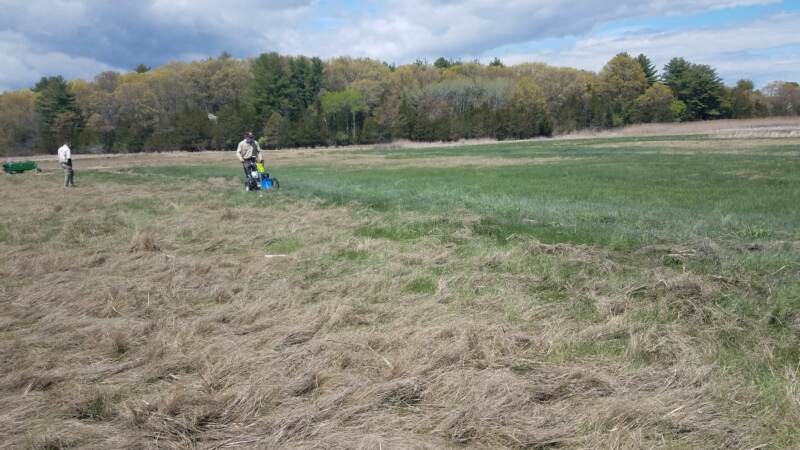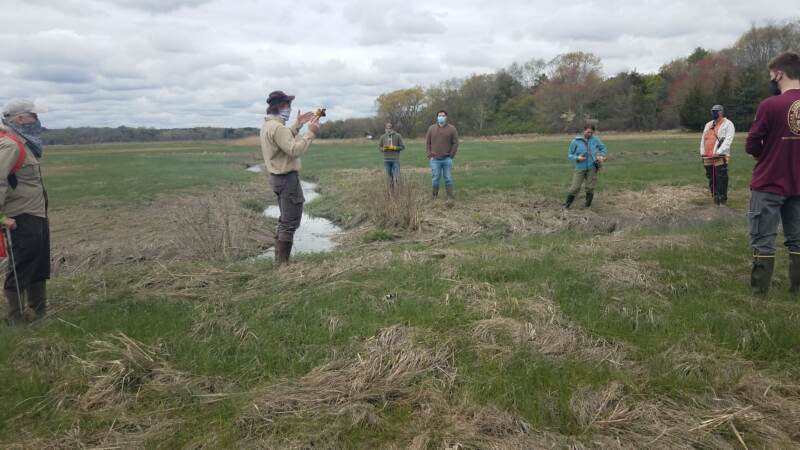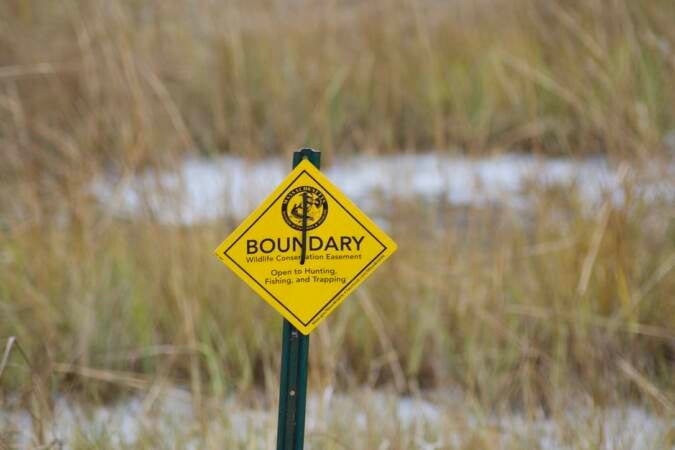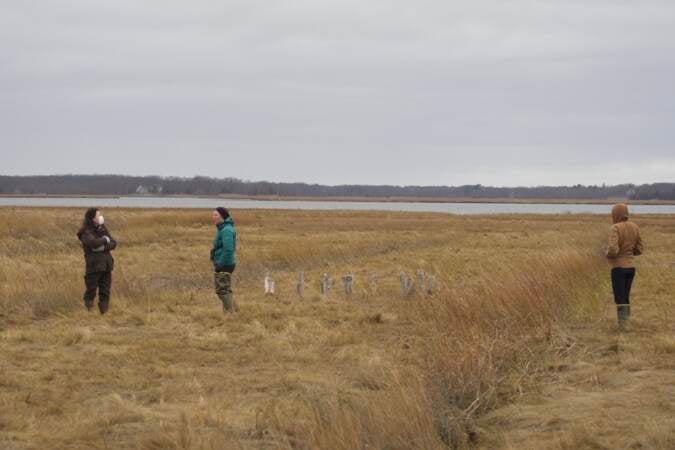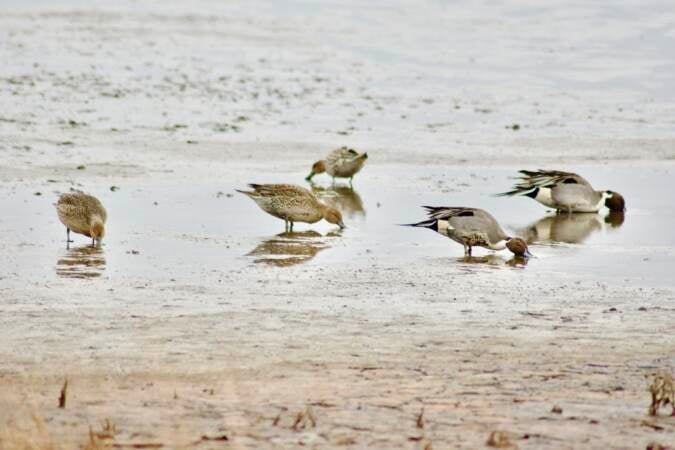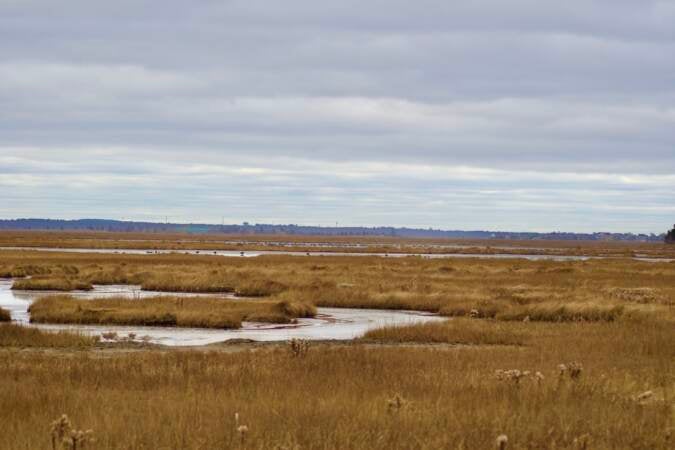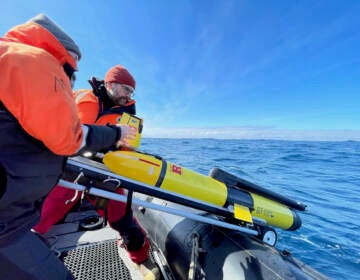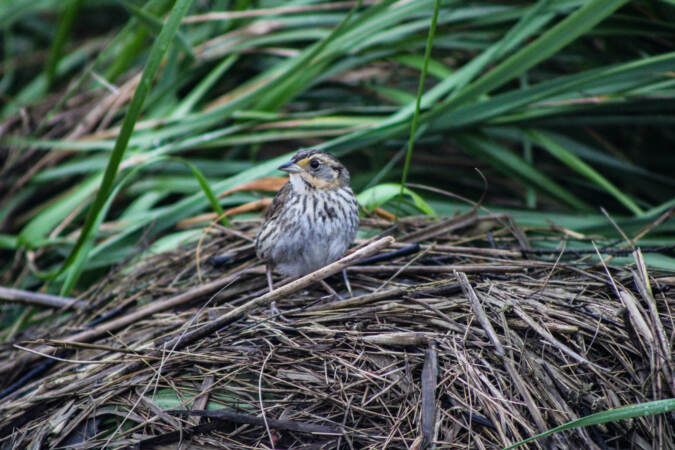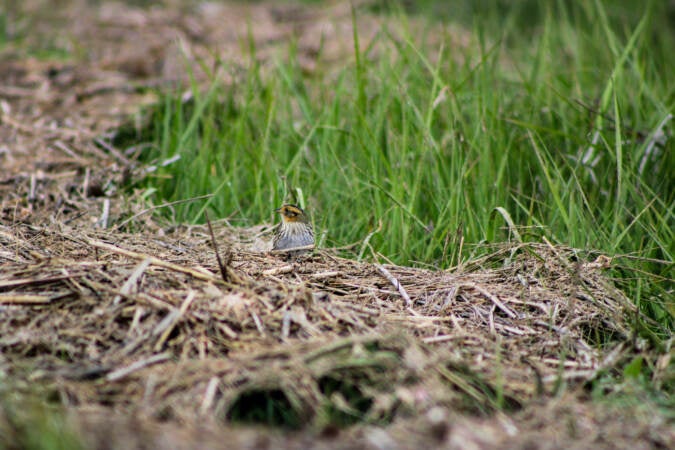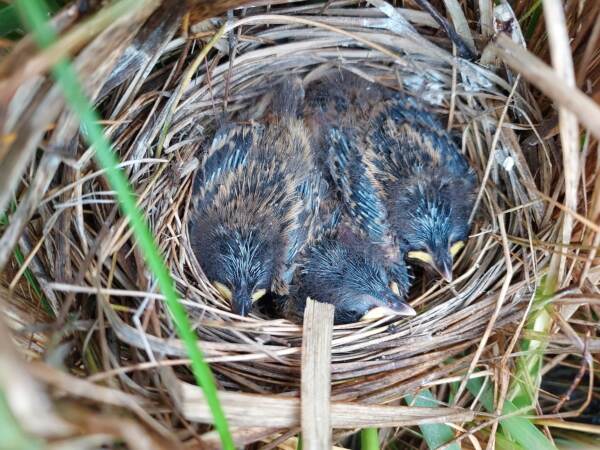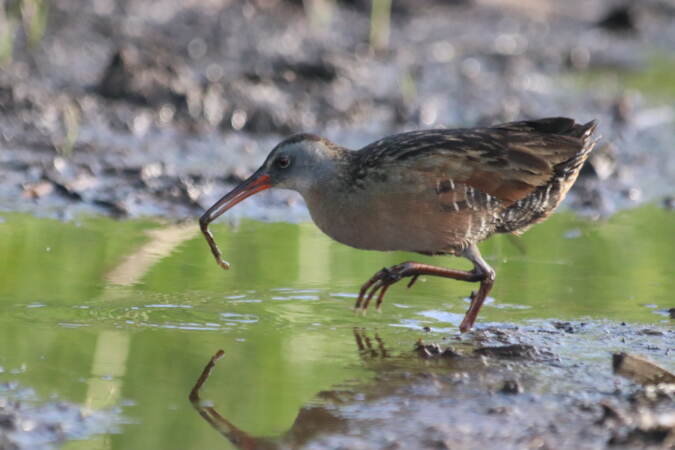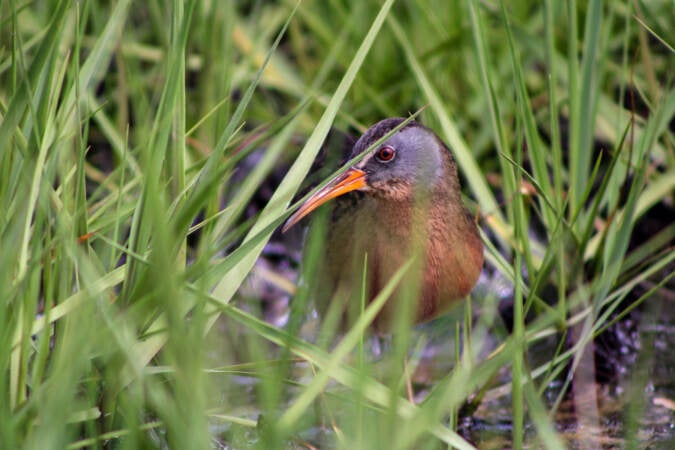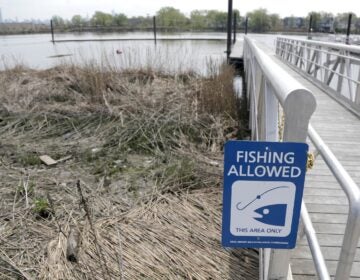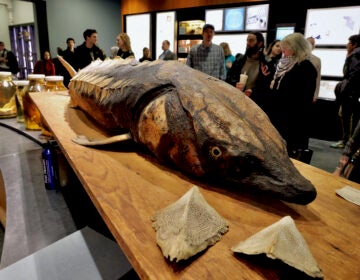Novel method will help restore Delaware and New Jersey salt marshes
Climate change threatens to “drown” Delaware’s salt marshes. New funds from the National Wildlife Foundation will use a novel method to restore them.
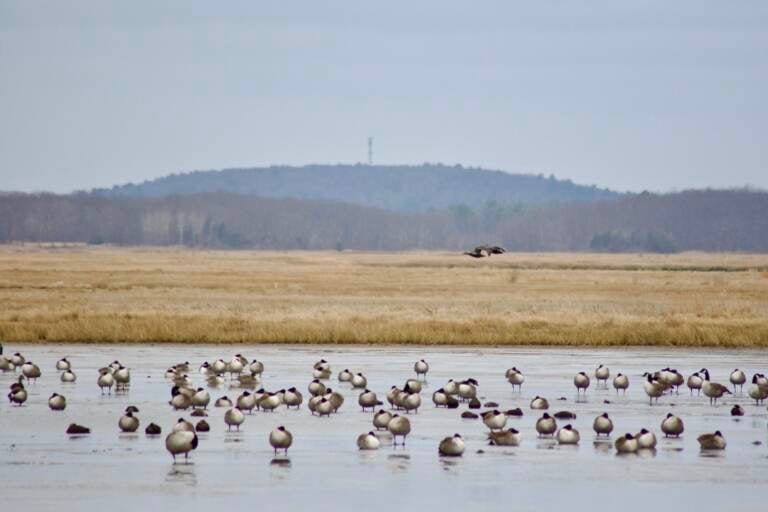
Environmentalists from Ducks Unlimited and other organizations are using $500,000 in funding to restore saltwater marshes in Delaware and New Jersey. Saltwater marshes protect communities from flooding, and provide habitat for birds and fish. (Courtesy of Ducks Unlimited)
Large storms can devastate coastal communities when no buffers exist to protect them.
But salt marshes, which are coastal wetlands flooded and drained by salt water from the tides, can shield buildings and homes.
“When Hurricane Sandy hit, if we didn’t have salt marshes there, a lot of homes would actually be more damaged,” said Emmy Casper, a wildlife biologist with the Conserve Wildlife Foundation of New Jersey. “They’re like little sponges that absorb a bunch of water that would otherwise be flooding houses.”
However, coastal towns are at greater risk of flooding today. That’s because salt marshes have been degraded by farming methods, and even historic practices meant to prevent mosquito breeding. Sea level rise caused by climate change puts more strain on the marshes.
“We’re really realizing the importance of saving our salt marshes, and realizing we need to do something now,” said Kaity Ripple, a fish and wildlife biologist for the U.S. Fish & Wildlife Service.
So, the environmental group Ducks Unlimited is using more than $500,000 in funding from the National Fish and Wildlife Foundation and other donors to restore salt marshes in Delaware and New Jersey. The organization is partnering with the U.S. Fish & Wildlife Service, and other local groups such as the Conserve Wildlife Foundation of New Jersey.
Ducks Unlimited will dig shallow channels called “runnels,” allowing standing water to escape more rapidly and restore the marshes to their natural state. This project uses a technique that’s low-cost and could potentially decrease the need for large-scale projects. The technique is new to the mid-Atlantic region, but has already shown success in New England.
“If you look at an unhealthy salt marsh, it’s very saturated. You’ll see a lot of bigger pools,” said Joe Genzel, a communications coordinator for Ducks Unlimited. “With a healthy salt marsh, you’ll see a lot of interconnected smaller pools. And so that’s what runnels do.”
Ducks Unlimited also will partially fill mosquito ditches. The project will take place over the next two years, and if successful, will continue at other sites where salt marsh habitat has deteriorated
The U.S. Fish & Wildlife Service found that about 70,000 of the 200,000 acres of salt marshes in New Jersey are degraded, and Delaware faces similar problems. The farming of salt hay for cattle and grazing animals, along with dikes, have significantly impacted marshes. They’re also still facing the effects of historic draining to manage mosquitoes.
These practices have changed the hydrology of the salt marshes, leading to vegetation and elevation loss.
“Now that sea level is increasing rather rapidly, a lot of the marshes are suffering. They’re basically drowning and being lost through erosion,” said LeeAnn Haaf, an estuary science manager for the Partnership for the Delaware Estuary, which is partnering with Ducks Unlimited.
The damage is also impacting birds, particularly black rail and salt marsh sparrows, which rely on the marshes for nesting. Environmentalists want to restore salt marshes because the salt marsh sparrow is at risk of going extinct. Some fish species also use salt marshes as nurseries.
“It’s pivotal that we do salt marsh restoration to kind of create new high marsh habitats to benefit those species,” said Casper of the Conserve Wildlife Foundation of New Jersey.
The U.S. Fish & Wildlife’s Ripple said the new project is just one tool to protect marshes, among multiple restoration efforts throughout the country.
“We’re trying to catch these marshes before they’re too far gone, and help increase the resilience,” she said.

Get daily updates from WHYY News!
WHYY is your source for fact-based, in-depth journalism and information. As a nonprofit organization, we rely on financial support from readers like you. Please give today.



